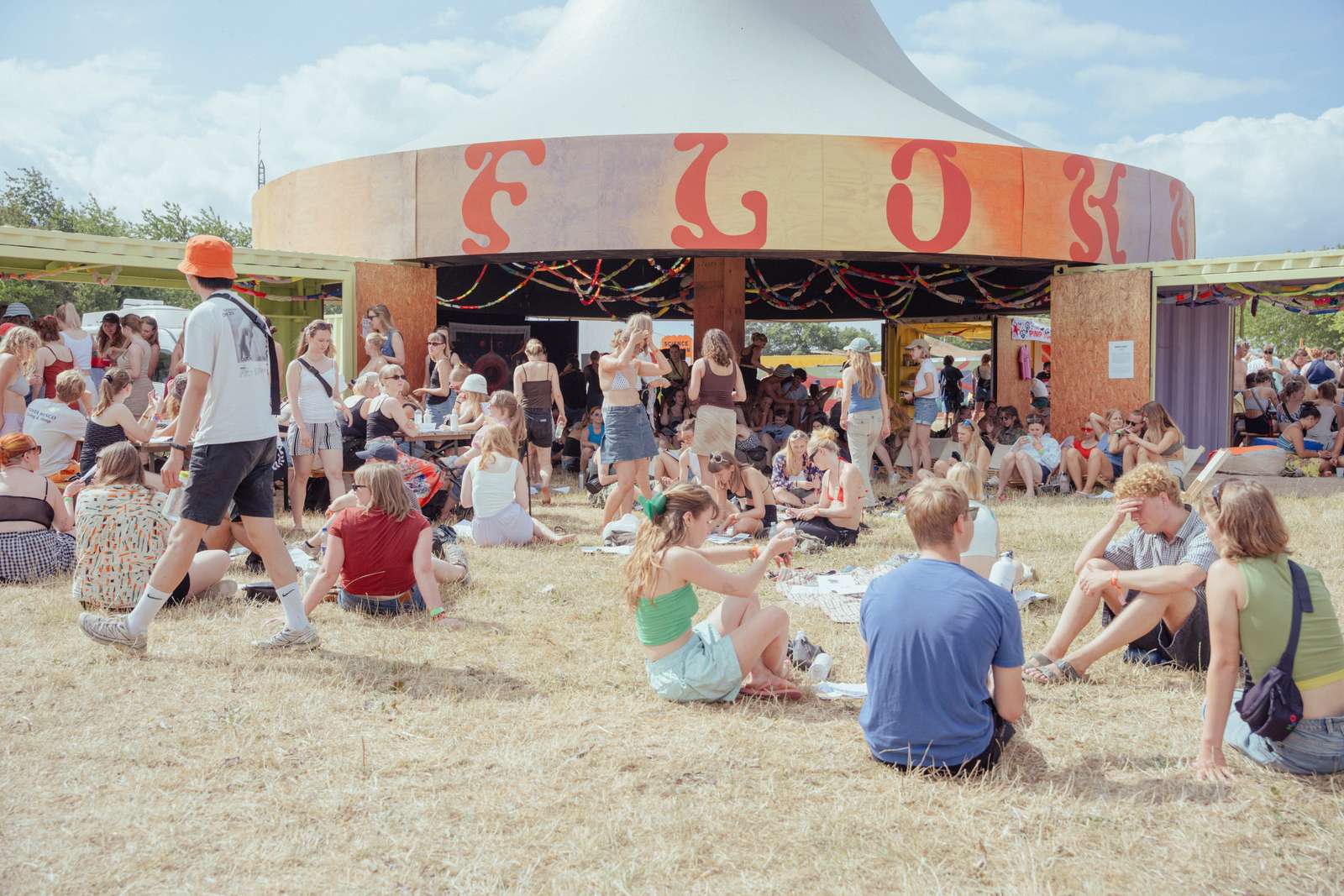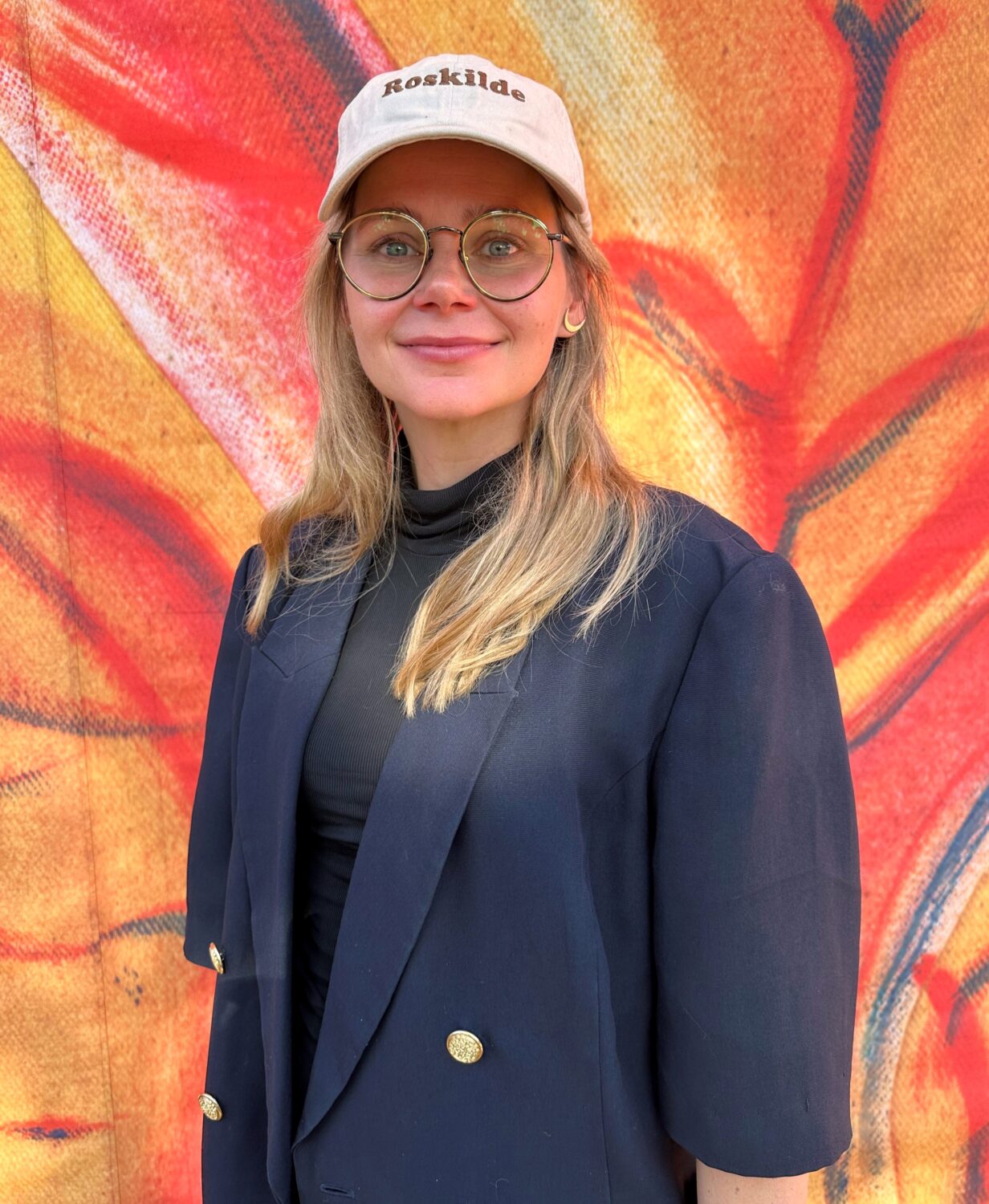
Fighting the performance crisis
For many, this is Roskilde Festival a synonym for four days of warm canned beer and rock concerts on a plough field in Darup, but in fact, the festival's DNA has been bottom-up activism since its founding in the early 1970s. Especially in the last decade, Roskilde Festival has actively marked itself as an annual celebration of the meeting between Music, art and activism.
The mission is to develop and open engaged communities that move people through music, art, sustainability and active participation. But how do you balance this as Northern Europe's largest music festival when many festival-goers still equate a party atmosphere with The Orange Feeling?
Dansk Artist Forbund spoke to Signe Brink Wehl, Artistic Director at Roskilde Festivalgruppen, to broaden festival-goers' horizons and shift their attitudes through a curated programme of art and activism.
- The two high school students who started the festival wanted to create an alternative to mainstream society centred around art and culture, Signe Brink Wehl begins to point out that the activist approach is not a recent idea.
- They were inspired by Woodstock and the Isle of Wight, and if they made a profit, they would raise money for the Black Panther movement.
Activism and empowerment for the young generation is necessary in these years, when more and more people are experiencing an increasing level of despair about the state of society. This is the kind of light that more and more people need, and it goes hand in hand with Roskilde Festival's values.
- Music can communicate complex social issues, says Signe Brink Wehl when asked why a festive respite like Roskilde Festival needs a more serious counterbalance.

- We have a youth generation today where the crises are piling up. There is a climate crisis, there is a mental health crisis, and Roskilde now indicates that there will also be a crisis of imagination.
- And that's super critical, because if we can't imagine a better future, how are we going to create it? What questions do we need to ask to imagine a better future?
One of the starting points is artist Lise Haller Baggesen's A Space Where Your Voices Can Live. Baggesen's installation, a depiction of the schizophrenic Caroline Ebbesen's hospitalisation at Sankt Hans Hospital, is not activist in its basic form, but it encourages social engagement.
Signe Brink Wehl elaborates on the curation of this year's programme.
- We also present activists. We have the young, vibrant NGOs that bring out the most burning agendas of our time. We take up themes such as women's struggle in Iran and put four young female climate activists from Uganda, Amazonas, Ecuador on the Arena stage at the height of musical performances.
-"We take the agendas, lift them up and cement that they are important. And then we mix them with artistic approaches.
For this very reason, UTOPIA has been chosen as this year's theme for Roskilde Festival. There is a need for some best case scenarios and to believe and hope for a better future.
- Not as a sci-fi fantasy, but more like what kind of communities we didn't know we had," explains Signe Brink Wehl about this year's special focus.
- How can we strengthen a network from here, so that in all the crises we can feel that we stand together in a common future? Can we perhaps push art even further? Both in a festival context, but also in society as a whole.
For the same reason, Signe Brink Wehl does not believe that the carefree festival atmosphere is mutually exclusive to the immersion in critical global agendas.
- I think the most important thing is not to be too didactic. Not everyone who comes in here is going to learn. But that's okay. Of course we teach, but some of it is also an experience.
- For the first three days we've had a programme out there, and it's primarily an activist programme, and there's a lot of interest in it. What the audience is telling us is that it's actually really nice to have a break and that they really want something more serious.
- They also expect us to bring it. That there is something else. That we put on a programme they can engage with and they can get close to.
- I think there's a particular expectation that we don't give them something they already know. Whether it's a slightly smaller connection, in terms of critical reflection, or whether it's a sensually overwhelming experience out here on the square," concludes the art director.
At Roskilde Festival 2023, you can experience talks, art and activism at Re:Act in the camping area, Flokkr in East City and Food Is Now.

